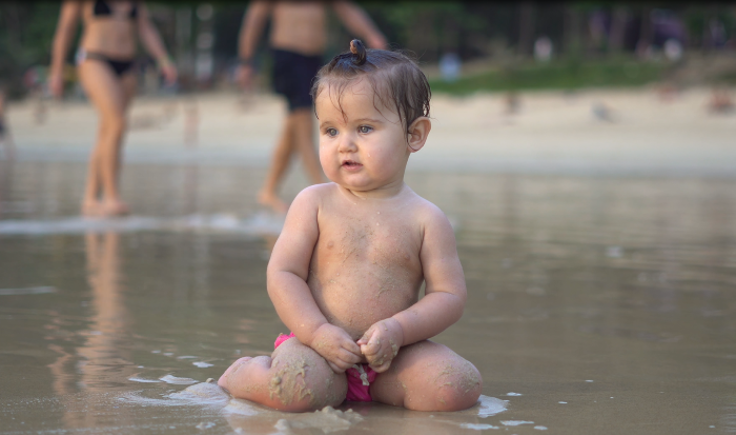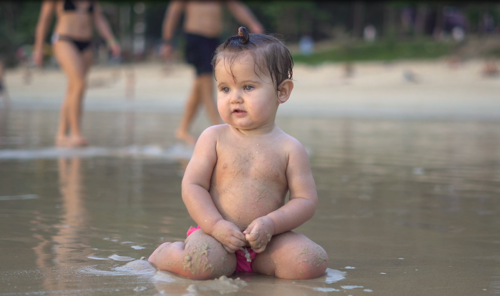When is there a need to bring forward MMR vaccination?
Article
|Updated
Are you planning to travel abroad with children between 9 and 15 months? It may be necessary to bring forward the first dose of MMR vaccine, which protects against measles, mumps and rubella.
There are frequent outbreaks of measles in Europe and other parts of the world. In general, consideration should be given to bringing forward vaccination for children under 15 months old when travelling to countries or areas with a high incidence of measles and low vaccination coverage, both in and outside Europe. This is not necessary for children who are staying in Norway.
Many countries are vulnerable to measles outbreaks due to low vaccination coverage in the population. Coronavirus outbreaks have led to delays in childhood immunisation in many countries due to an increased burden on health care and a reallocation of resources. This has led to a significantly increased risk of outbreaks of measles. This makes it extra important that children in Norway receive the MMR vaccine at the recommended time, and that travellers check the situation at their destination before departure to assess the need to bring forward vaccination.
There is no complete updated list of all outbreaks at any given time. The ECDC (European Centre for Disease Prevention and Control) and the WHO (World Health Organization) monitor the situation and regularly report reported cases of measles and rubella both in and outside Europe:
- Monthly reports on measles and rubella in EU / EEA countries (ECDC)
- Monthly reports on measles and rubella in the world (WHO)
- Weekly Reports on Infectious Diseases (ECDC)
In Europe, the measles virus is circulating in the population of several countries. When planning travel with young children to these countries, consideration should be given to bringing forward MMR vaccination. In other European countries, the risk is generally lower, but some countries may not monitor their infection situation.
Many countries that are common destinations for Norwegians have high vaccination coverage and little circulating infection. Bringing vaccination forward is not considered necessary when travelling to these countries.
Countries with / without circulating infection
|
Countries in Europe with circulating infection* |
Countries in Europe without circulating infection* |
|
|
|
Source: WHO *There is no complete overview of which areas have outbreaks at any given time. The overview was prepared by the WHO in November 2022 and refers to the situation in 2021, which may have changed for some countries. At this time, Iceland, Israel and Ukraine had not submitted a report for 2021. |
|
|
Table 1. Overview of European countries with/without known circulating measles infection in 2021* |
|
The American continent was declared free of measles in 2016, and was the only region that according to the WHO had managed to stop the continuous transmission (due to high vaccination coverage in the population). In recent years, however, the measles virus has re-established itself in Venezuela and Brazil, and there have been large outbreaks in USA, particularly among groups with low vaccination coverage. The risk of encountering measles will usually be small on short holiday trips to the United States.
Evaluating the risk of infection
Possible factors in assessing the risk of infection:
- Travellers who will visit family / friends should ask them about the local situation.
- Living in an apartment, house or smaller hotel gives less risk of transmission (fewer contacts) than staying in large hotel complexes.
- Having others in the travel party who are immune by vaccination or having already had measles, helps to protect unvaccinated children.
In other parts of the world, especially in Africa and Asia, there is a risk of outbreaks at all times and bringing vaccination forward before travel should be considered.
Parents must, possibly in consultation with their own doctor, consider whether or where they want to take their children on a trip. If they choose to travel, the parents must discuss the need to possibly bring forward vaccination with their doctor.
Vaccine recommendations for children
The MMR vaccine has been approved for use from the age of 9 months. This is because efficacy and safety have not been studied in younger children.
However, it is an advantage to wait with the first dose of MMR vaccine until the child is 15 months old because the vaccine works better at that age. When vaccinated at the age of 9-12 months, the child must receive a new dose at the correct age (15 months) to ensure sufficient protection.
An MMR vaccine given after the age of 12 months is fully valid in the Norwegian immunisation programme.
What about babies under 9 months?
Newborns and infants will often be protected against measles through antibodies transferred from the mother during pregnancy, provided that the mother has been vaccinated against measles or has had the disease. However, it is difficult to say for sure how good and long-lasting the protection is, but the antibodies disappear when the child is between 3 and 9 months old. The duration is shorter if the mother has been vaccinated than if she had the illness. If you have to travel to areas with an ongoing large outbreak and a high risk of the child becoming infected, a doctor may, in certain circumstances, prescribe a vaccine from the age of 6 months (off-label use).
Parents and other close contacts who have not had measles should be vaccinated. This helps to reduce the infection burden on the youngest children.
Should the second dose of MMR in 6th grade be brought forward for children before travel?
The childhood immunisation programme offers a total of two doses of MMR vaccine: the first is given at the age of 15 months and the second in the 6th grade. Vaccination with one dose provides protection among approximately 95 per cent. The second dose is given primarily to protect the 5 per cent of children who, for various reasons, did not respond to the first dose of vaccine. Children who have received their first dose of MMR vaccine after the age of 12 months usually do not need to advance their second dose of MMR before travelling, but can receive it according to the 6th grade programme.
What about adults?
All adults who have not previously had measles should be vaccinated.
How long does it take for the vaccine to work?
In most case, it takes two to three weeks before the vaccine provides good protection.
No need to advance the MMR vaccine for children staying in Norway
Although some cases of measles are detected in Norway every year, there is no need to bring forward the MMR vaccine for children who are staying in Norway. Vaccination coverage is high and the risk of infection is very small.
Exceptions may occur among close contacts around individual cases. Those concerned will receive information from the health service about this.

